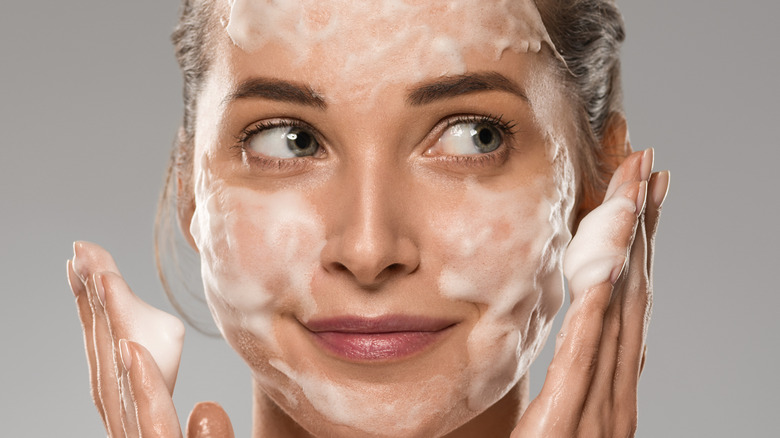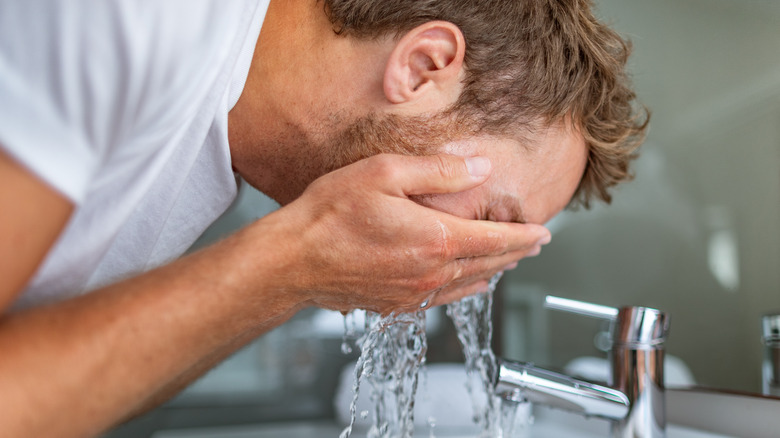The Ingredients You Don't Want To See In Your Face Wash
Many of us are careful to exercise, drink plenty of water, and eat a healthy diet to support a strong immune system. What about all of those skincare products on the bathroom shelf, especially the face wash you use first thing in the morning? Could they actually be doing harm?
Dermatologists are quick to point out that skin is the body's largest organ, and skin health is essential to overall health. Since the skin is also porous and prone to absorbing a certain amount of whatever is put on it, it's important that the ingredients in our skincare products are safe.
Unfortunately, most skincare products are not regulated by the U.S. Food and Drug Administration and could contain harmful ingredients. "Products are tested to make sure they don't cause short-term problems, such as skin irritation," Dr. Kathryn M. Rexrode, associate professor of medicine and chief of the Division of Women's Health at Harvard Medical School, told Harvard Medical School. "But they're not tested for long-term safety."
When it comes to face wash, there are a number of potentially harmful ingredients that could find their way into the bottle, such as sulfates. There are various different kinds of sulfates, with sodium lauryl sulfate and sodium laureth sulfate being 2 of the most common.
Face wash can contain potentially irritating ingredients
As surfactants, sodium lauryl sulfate and sodium laureth sulfate bind to dirt and oil particles. They also create a foaming effect, making it easy to rinse those bits away with water. The problem is that they can do their job too well, stripping necessary oils from the skin's surface, causing dryness and irritation.
Fragrance can also pose a problem. We all love nice-smelling body products, but "fragrance" can be a catch-all term for any cocktail of potentially harmful chemicals. Individual "fragrance" ingredients do not have to be listed on labels, so your best bet is to opt for fragrance-free cleansers.
While it might seem strange to think that face washes contain alcohol, many do, either as a preservative or to help tighten skin and have it dry more quickly. The problem is that they can be too harsh and drying, damaging the skin's protective layer. The flip side of that is that there are many different types of alcohol, and some can actually have the opposite effect. Fatty alcohols, like stearyl and cetyl, can keep the skin moisturized.
The bottom line? When it comes to face wash, it's worth reading the ingredient label carefully. If a product is drying or irritating, note the ingredients and remember that in skincare, less is often more. "The best products are the simplest products that don't contain too many ingredients," Dr. Paul Bigliardi, a professor of dermatology at the University of Minnesota Medical School, told Insider.


